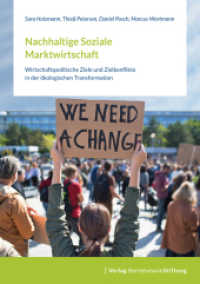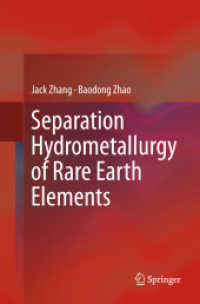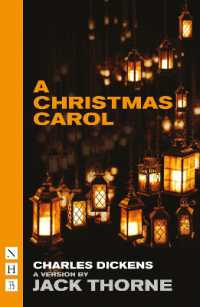- ホーム
- > 洋書
- > 英文書
- > History / World
基本説明
Explores the historical development of some central themes about property, showing how these themes sparked confrontation between apologists and critics of private property over its legitimacy, among philosophers, theologians and jurists through the ages.
Full Description
This book explores ancient 'foundational' texts relating to property and their reception by later thinkers in their various contexts up to the early nineteenth century. The texts include Plato's vision of an ideal polity in the Republic, Jesus' teachings on renunciation and poverty, and Golden Age narratives and other evolutionary accounts of the transition of mankind from primeval communality to regimes of ownership. The issue of the legitimacy of private ownership exercises the minds of the major political thinkers as well as theologians and jurists throughout the ages. The book gives full consideration to the historical development of Rights Theory, with special reference to the right to property. It ends with a comparative study of the Declarations of Rights in the American and French Revolutions and seeks to explain, with reference to contemporary documents, why the French recognised an inalienable, human right to property whereas the Americans did not.
Contents
Introduction; 1. Plato's 'communism', Aristotle's critique and Proclus' response; 2. Plato's 'communism': from late antiquity via Islamic Spain to the Renaissance; 3. Renunciation and communality: thinking through the primitive Church; 4. The poverty of Christ: crises of asceticism from the Pelagians to the Franciscans; 5. The state of nature and the origin of private property: Hesiod to William of Ockham; 6. The state of nature and the origin of private property: Grotius to Hegel; 7. Property as a legal right; 8. Property as a human right; Conclusion.








